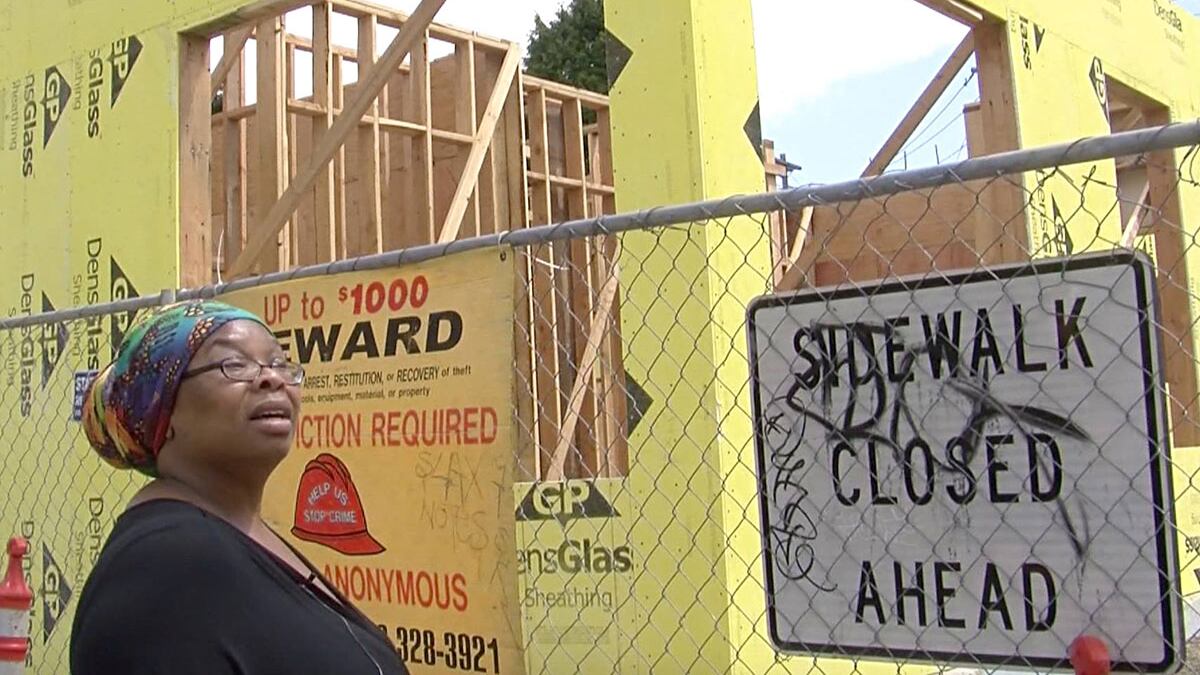Priced Out begins with a quote from a former Northeast Albina Avenue resident in white text against the black screen: "The black community has always been like a canary in a coal mine."
Directed and narrated by Portland filmmaker Cornelius Swart, Priced Out depicts the drastic change North Portland has undergone in the past two decades. It distinguishes gentrification, revitalization and a housing crisis while also giving deeper context of the history of the neighborhood.
"What's remarkable about Portland is that we're seeing a mid-size city experience a housing crisis of a top-tier metropolitan area," says Swart. "Nearly all cities are going through some form of gentrification right now, because tastes have changed. The American Dream used to be living in the suburbs, and that's not true anymore."
Along with interviews of former and current residents, neighborhood leaders and county commissioners, Priced Out features images from the thriving Vanport community before it was destroyed by a flood and the heyday of African-American graffiti along MLK in the ’50s and ’60s.
The documentary later compares shots of intersections in the late '90s and present day. One clip shows a black woman tapping her reflection in a cracked window, while the following image shows white women in yoga gear walking past renovated storefronts.
Swart himself bought a house on North Williams as a young, white newcomer in the late '90s. It was there that he met his neighbor, Nikki Williams, who was the primary subject in NorthEast Passage, Swart's 2002 documentary on gentrification and urban renewal. Williams became a symbol for NoPo residents who looked forward to change if it meant cleaning up the neighborhood. In NorthEast Passage, she lamented sidewalk violence and cleaning needles out of the yard before her young daughter, Anna, could play outside.
But a lot has changed in the 15 years since NorthEast Passage. "I mostly did this follow-up film because Nikki asked me," said Swart. "She left NorthEast Passage on a note that she was pro-gentrification, and I felt that she was owed an opportunity to update the record, so to speak."
This time around, Williams contacted Swart to tell him she was leaving. It wasn't because of the rising cost of living, but because of how unfamiliar her neighborhood has become. In Priced Out, her daughter Anna, now 26 and with a child of her own, talks about no longer feeling at home on the streets she grew up on, and the heartbreak of seeing new neighbors refuse to play with her son.
"It's not just that it's all white," says Williams in the film. "It's a different kind of white. Back in the day, at least people would look you in the eye. Now it's this 'I'm afraid to look at you, talk at you' kind of white. I joke that I feel like Moses when I walk down Mississippi, because the waters seem to part."
Priced Out isn't just about gentrification. It tracks North Portland's evolution into a heart of 'New Portland.' Through its interviews, the film puts words to the ambient tension between new and old residents.
It also illustrates that Portland's racial issues aren't just about 100-year-old exclusion laws. In one scene, a former North Portland resident named Michelle Lewis mentions finding KKK flyers in the deep southeast 100 blocks, where she can now afford to live. In another, Williams describes why she wants to leave Portland, even though she managed to stay in her house over the years of change. "I wanted to see people give a damn about that community, not to push us out and make things nice for the new, white community," says Williams. "I want to ask these new people, 'Where were you when we were cleaning up this neighborhood?'"
Swart emphasizes that the easiest step in helping the problem is being aware of yourself when you move into a new neighborhood. "A majority of what people say about what bothers them about gentrification, aside from displacement, is how badly they're treated by the people who move here," he says. "That's something newcomers have complete power over."
SEE IT: Priced Out screens at Kennedy School, 5736 NE 33rd Ave., pricedoutmovie.com. 7 pm and 9:30 pm Wednesday, Dec. 13. $5–$10.

